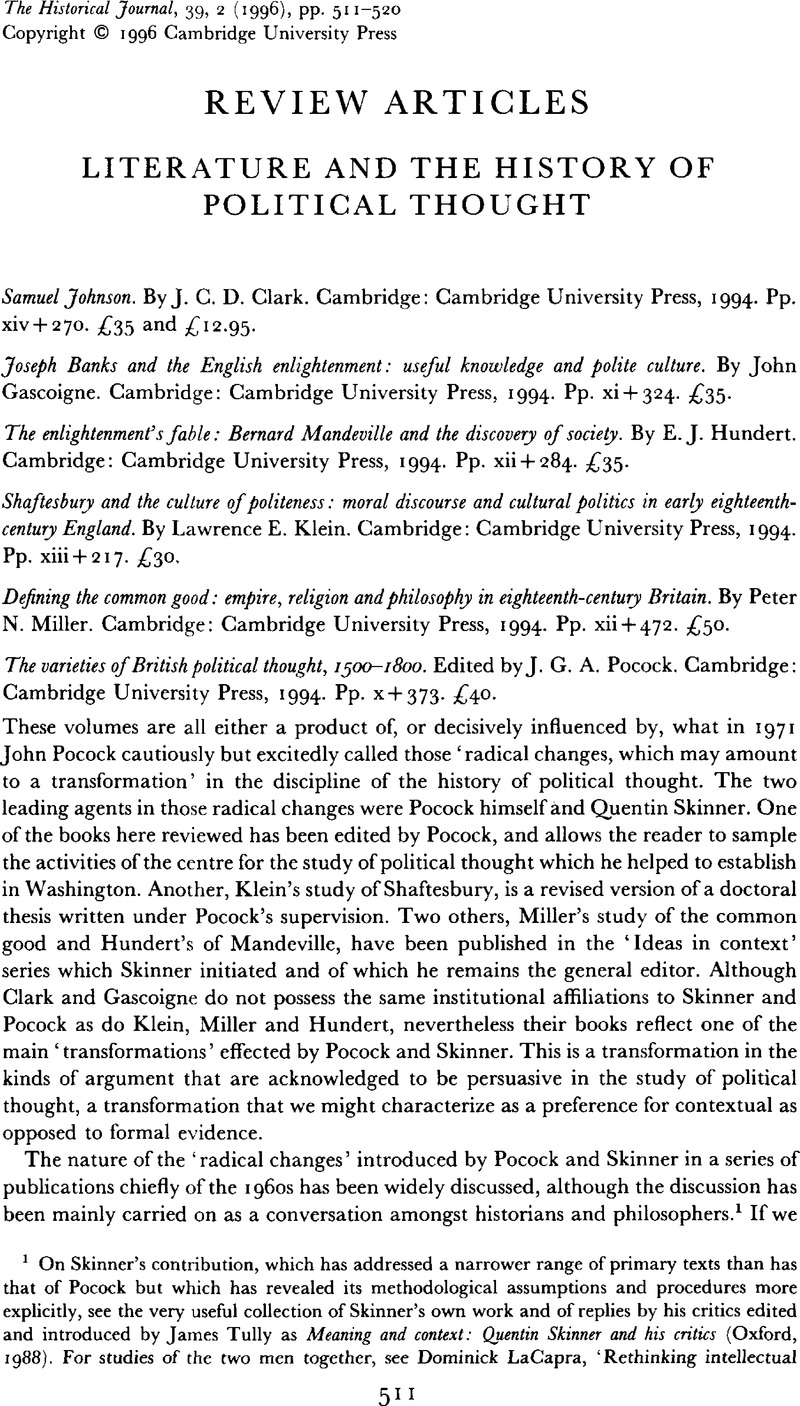Article contents
Literature and the history of political thought
Published online by Cambridge University Press: 11 February 2009
Abstract

- Type
- Review Articles
- Information
- Copyright
- Copyright © Cambridge University Press 1996
References
1 On Skinner's contribution, which has addressed a narrower range of primary texts than has that of Pocock but which has revealed its methodological assumptions and procedures more explicitly, see the very useful collection of Skinner's own work and of replies by his critics edited and introduced by James, Tully as Meaning and context: Quentin Skinner and his critics (Oxford, 1988)Google Scholar. For studies of the two men together, see Dominick, LaCapra, ‘Rethinking intellectual history and reading texts’, History and Theory, XIX (1980), 245–76Google Scholar and Peter L., Janssen, ‘Political thought as traditionary action: the critical response to Skinner and Pocock’, History and Theory, XXIV (1985), 115–46.Google Scholar
2 The crucial distinction between Skinner and Pocock and the structuralists is that Skinner and Pocock both cleave to a strong concept of the author who, in writing, performs acts which bear some relation to previous, conscious and willed intentions (although those intentions may not fully account for the resulting work). Structuralists such as Barthes have depicted the author as a dummy ventriloquized by the linguistic structures within which his utterances occur.
3 Lévi-Strauss elaborates the distinction between the bricoleur and the engineer in The savage mind (Chicago, 1966)Google Scholar. For Derrida's critique, see ‘Structure, sign and play in the discourse of the human sciences’, Writing and difference (Chicago, 1978), pp. 278–93.Google Scholar
- 1
- Cited by


